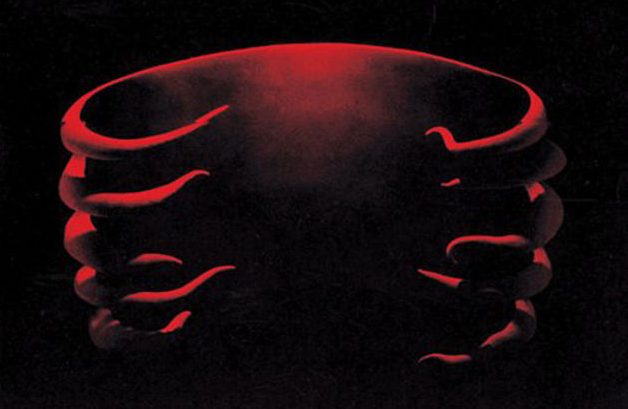How James Maynard Keenan expresses genius
December 7, 2018
Tool originally had considered quitting, until the band accumulated tremendous fame and fortune from the album “10,000.”
James Kennan often referred to his existence in the military presence within his music because of its tremendous influence on his life. He met Justin Chancellor, (Tool’s Bassist) early on in his career, and he introduced him to the Drop D tuning. That sound became very familiar to Keenan, as it was about to make his career.
Tool hit top 10 charts upon the release of “Lateralus.” The album Keenan titled refers to the ability to laterally think. Thoughts that are so deep and personal that they can be called lateral. In fact, this song is so deep and concentrated that the song structure itself is based on a sequence of numbers referred to as the “Fibonacci Sequence.” The bass and guitar structure follow the numbers in which some order, 1, 1, 2, 3, 5, and 8. To prove this, the song is structured, “Black/Then/White are/ all I see/ in my infancy/ red and yellow then came to be.” So each syllable represents the first six numbers of the sequence, and in doing this structure, Keenan proves the genius of thinking laterally, and connecting life to everything imaginable.
James’ father left him at an early age. And for about twelve years of his life, he’d only see his father once per year. However, his mother remarried, and the mother and son moved in with his step father. However, this step father was very abusive. There, his intelligence and creative expression would be stifled. And in case of this song, it’s his redemption as he could never have the opportunity nor foundation to have sang or wrote something like this until he gave himself the foundation.
Keenan’s mother suffered a paralyzing cerebral aneurysm in 1976, which was a huge influence on his life and work. He wrote the song “Judith” with his band “A Perfect Circle” in honor of his mother, and to glorify her death, and keep her legacy alive.
After moving to Los Angeles, Keenan met Adam Jones heard him singing on a demo in college. Impressed with Keenan’s vocals, Jones suggested that they form a band. Reluctant, Keenan eventually agreed and, in 1990, Tool was formed. Fronted by Keenan, the eventual lineup included guitarist Jones; his neighbor, drummer Danny Carey; and bassist Paul D’Amour, who would later be replaced by Justin Chancellor.
In October 1996, the band released their second studio album, Ænima. The album was certified gold in ten weeks, achieved double platinum in ten months, and won the Grammy Award for Best Metal Performance in 1998.
After the release of the album, Tool began a prolonged legal battle with their label, Volcano Records (formerly Zoo Records), over contract violations. Following this legal battle, which resulted in a new three-record deal, the members of Tool decided to take some time off. During the hiatus, Keenan went under the alias “GLC.” while collaborating with Tim Alexander of Primus and Mike Bordin of Faith No More on “Choked,” a track on the 1997 drumming compilation Flyin’ Traps.
James Maynard Keenan is one of very few vocalists to have the mentality and level of thinking he has obtained throughout life. To think laterally the way he does must be some form of genius. “Lateralus” is just one of many songs written by Tool that express such a deep and connective point or message. James Maynard Keenan is one of the five geniuses of Tool, and his work should be admired for its insanity and depth.

